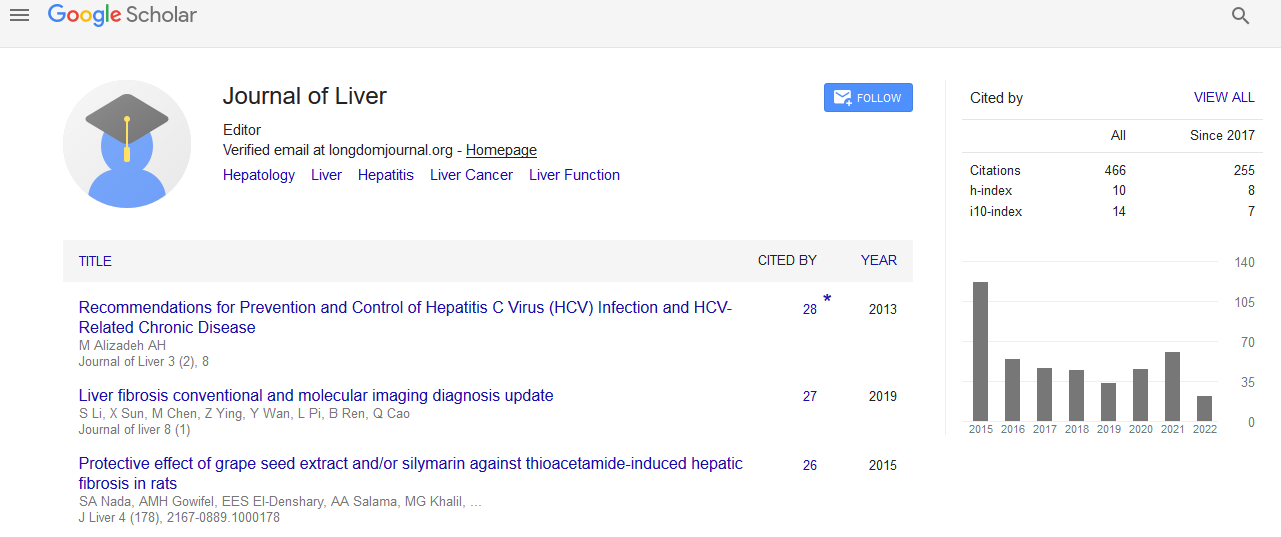PMC/PubMed Indexed Articles
Indexed In
- Open J Gate
- Genamics JournalSeek
- Academic Keys
- RefSeek
- Hamdard University
- EBSCO A-Z
- OCLC- WorldCat
- Publons
- Geneva Foundation for Medical Education and Research
- Google Scholar
Useful Links
Share This Page
Journal Flyer

Open Access Journals
- Agri and Aquaculture
- Biochemistry
- Bioinformatics & Systems Biology
- Business & Management
- Chemistry
- Clinical Sciences
- Engineering
- Food & Nutrition
- General Science
- Genetics & Molecular Biology
- Immunology & Microbiology
- Medical Sciences
- Neuroscience & Psychology
- Nursing & Health Care
- Pharmaceutical Sciences
The regulation and functional roles of the HCV NS5A-stabilizing factor, Y-Box binding protein 1, in HCV life cycle
2nd International Conference on Hepatology
May 09-11, 2016 Chicago, USA
Wei-Ting Wang
National Chiao-Tung University, Taiwan
Scientific Tracks Abstracts: J Liver
Abstract:
Chronic hepatitis C virus (HCV) infection is one of the leading causes of chronic hepatitis, liver cirrhosis and hepatocellular carcinoma (HCC). More than 130 million people are now infected with HCV worldwide. Since there is no available vaccine, HCV infection remains a serious global health problem. Recently, the HCV nonstructural protein 5A (NS5A) has emerged as a novel anti-HCV drug target and the roles of this enigmatic viral protein in HCV propagation have been largely uncovered. Although without enzymatic activity, HCV NS5A plays multiple roles in HCV propagation and participates in almost every stage of HCV life cycle, including HCV RNA replication and infectious virus production. Our recent studies have shown that the cellular protein Y-box binding protein 1 (YB-1), a known HCV cellular cofactor, interacts with and protects NS5A from rapid degradation by which YB-1 regulates the early stage of HCV RNA replication and infectious HCV virion production. Our studies then revealed that the NS5A-stabilizing activity of YB-1 is tightly controlled by a single phosphorylation of YB-1 at serine 102 which is probably mediated by HCV-infection-induced PI3K/Akt signaling. Taken together, our results have not only disclosed a probable regulatory mechanism for HCV to control the level of its own viral protein through cellular factor, but also revealed a potential strategy for developing novel anti-HCV drugs.
Biography :
Wei-Ting Wang has completed her PhD from National Yang-Ming University and is now a Post-doctoral fellow in National Chiao-Tung University.
Email: weiting7121@gmail.com

